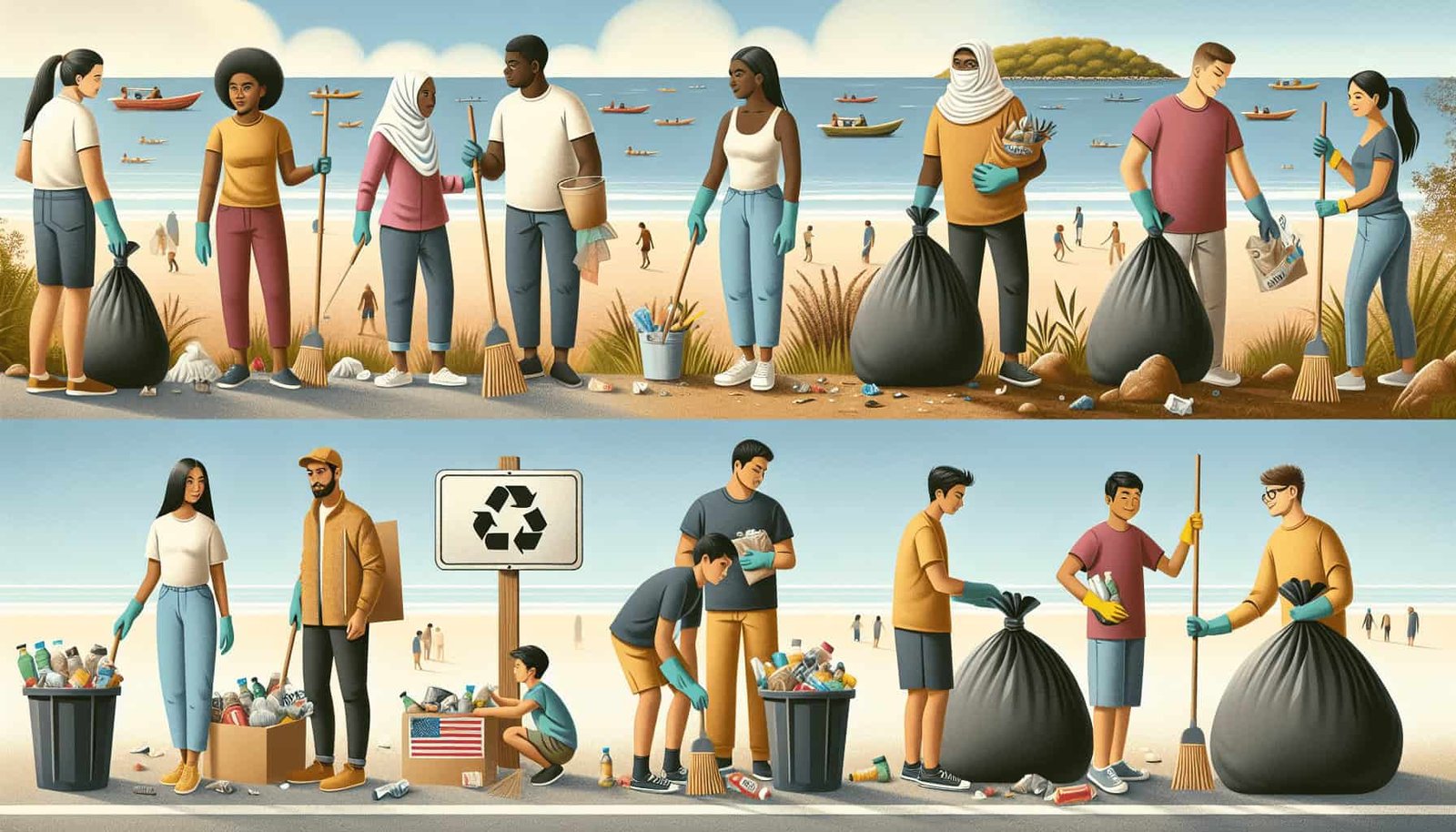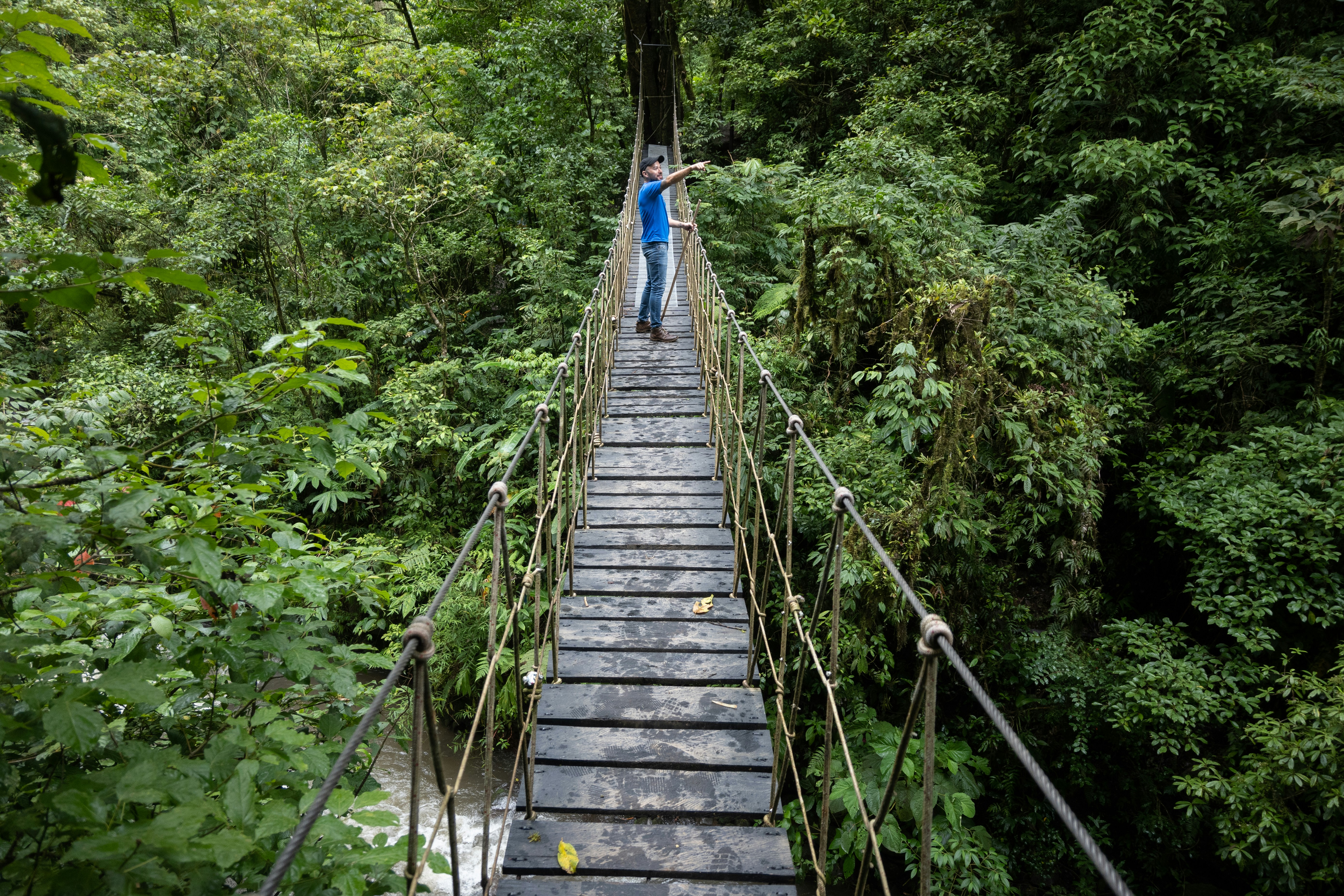During your beach visit, you may be wondering how you can play a role in supporting local conservation efforts. Whether you’re strolling along the shoreline, taking a dip in the water, or simply enjoying the sun, there are several simple yet impactful ways you can contribute to the preservation of the beach ecosystem. By being mindful of your actions, reducing your environmental footprint, and engaging in beach cleanup initiatives, you can make a positive difference and ensure that future generations will also have the opportunity to relish in the beauty of these coastal sanctuaries.
Reduce Your Waste
Use reusable water bottles and coffee cups
One of the simplest and most effective ways to reduce your waste is by using reusable water bottles and coffee cups. Instead of relying on single-use plastic bottles and disposable coffee cups, invest in a good-quality reusable bottle and mug. Not only will this significantly reduce the amount of waste you produce, but it will also help to conserve valuable resources. With so many stylish and durable options available, there’s no excuse not to make this small change.
Bring your own reusable bags for shopping
Another great way to minimize waste is by bringing your own reusable bags when you go shopping. Single-use plastic bags are a major contributor to litter and can have devastating effects on wildlife and ecosystems. By bringing your own bags, you can eliminate the need for plastic bags altogether. There are a variety of reusable bag options to choose from, including cotton totes and sturdy mesh bags. Keep a few handy in your car or backpack, so you never find yourself without one.
Pack a waste-free picnic
When planning a day at the beach, consider packing a waste-free picnic. Instead of relying on disposable plates, cups, and utensils, opt for reusable alternatives. Bring along stainless steel or bamboo cutlery, lightweight plates and bowls, and a thermos or stainless steel water bottles. You can even pack your snacks in reusable containers or beeswax wraps instead of single-use plastic bags or cling film. By making a few simple changes, you can enjoy your picnic guilt-free, knowing that you’ve reduced your waste.
Properly dispose of any trash or litter
Lastly, it is essential to properly dispose of any trash or litter you generate while at the beach. Ensure that you use designated trash bins and recycling facilities provided in the area. If you can’t find a bin nearby, hold onto your trash until you can dispose of it properly. Remember, even small bits of litter can have a significant impact on wildlife and the environment. By taking responsibility for your waste, you can help maintain the beauty and cleanliness of the beach for everyone to enjoy.
Respect the Natural Environment
Stay on designated paths and beaches
Respecting the natural environment starts with staying on designated paths and beaches. These designated areas are established to protect fragile ecosystems and prevent damage to sensitive habitats. By staying on the designated paths and beaches, you avoid trampling vegetation, disturbing wildlife, and damaging delicate ecosystems. Additionally, following these guidelines ensures the safety of visitors and helps to maintain the natural beauty of the beach for future generations to enjoy.
Do not disturb or remove wildlife or plants
While it may be tempting to get up close and personal with the local wildlife and vegetation, it is crucial to resist the urge to disturb or remove any plants or animals. Touching or handling wildlife can disrupt their natural behaviors, cause stress, or even transmit diseases. Similarly, removing plants can disrupt the natural balance of the ecosystem and harm vulnerable species. Appreciate the beauty of nature from a respectful distance and remember that you are a guest in their home.
Avoid feeding wild animals
Feeding wild animals at the beach can have serious consequences for their health and natural behaviors. Many human foods are not suitable for wildlife and can lead to malnutrition, illness, or dependency on humans for food. Feeding wild animals can also cause them to lose their natural fear of humans, leading to potential conflicts or dangerous situations. Enjoy observing wildlife in their natural habitat, but let them find their own sources of food and maintain their natural behaviors.
Leave shells, rocks, and other natural items in place
While it may be tempting to collect shells, rocks, or other natural items as souvenirs, it is important to leave them where you find them. These items provide important habitats and resources for marine life and can help maintain the ecological balance of the beach. Removing these natural items can disrupt ecosystems and deprive wildlife of crucial resources. Instead, take pictures or create memories of these natural treasures, and leave them for others to enjoy.
Use Environmentally Friendly Sunscreen
Choose sunscreen without harmful chemicals
When it comes to protecting your skin from the sun’s harmful rays, it is essential to choose a sunscreen without harmful chemicals. Certain chemicals found in many traditional sunscreens, such as oxybenzone and octinoxate, can have detrimental effects on coral reefs and other marine life. Look for sunscreens that are labeled “reef safe” or “ocean friendly” to ensure that you’re not contributing to coral bleaching or other ecological damage.
Opt for mineral-based sunscreens
Mineral-based sunscreens, also known as physical sunscreens, are a great alternative to chemical sunscreens. These sunscreens use minerals like zinc oxide or titanium dioxide to physically block the sun’s rays from reaching your skin. Unlike chemical sunscreens, mineral-based options do not contain harmful chemicals and are generally considered more environmentally friendly.
Follow application and reapplication instructions
To ensure your sunscreen is effective and provides adequate protection, it is crucial to follow the application and reapplication instructions. Apply sunscreen liberally to all exposed areas of skin at least 15 minutes before sun exposure. Be sure to reapply regularly, especially after swimming or sweating, as the sunscreen can wear off. By following these instructions, you can protect your skin without harming the environment.
Consider wearing protective clothing
In addition to using sunscreen, consider wearing protective clothing to shield your skin from the sun. Lightweight, long-sleeved shirts, wide-brimmed hats, and sunglasses can provide an extra layer of protection against harmful UV rays. Not only will this help reduce your sunscreen use, but it will also protect your skin and contribute to your overall sun safety.
Support Local Conservation Organizations
Donate to or volunteer with local conservation groups
Contributing to local conservation efforts can be as simple as donating to or volunteering with local conservation organizations. These organizations work tirelessly to protect and preserve the natural beauty of the beach and its surrounding ecosystems. By supporting them financially or giving your time, you can directly contribute to their conservation initiatives and make a meaningful impact on the environment.
Participate in beach clean-up events
Beach clean-up events are a fantastic way to actively contribute to local conservation efforts. These organized events bring together volunteers of all ages to collect litter and debris from the beach. By dedicating a few hours of your time, you can help restore the natural beauty of the beach, prevent wildlife harm, and educate others about the importance of keeping our oceans clean. Check with local conservation organizations or community groups to find out about upcoming beach clean-up events near you.
Attend educational programs or workshops on local conservation
Educating yourself about local conservation challenges and initiatives is a crucial step in becoming a responsible beach visitor. Seek out educational programs or workshops offered by local conservation organizations, universities, or community centers. These programs can provide valuable insights into the unique ecosystems, endangered species, environmental threats, and conservation efforts of the area. By expanding your knowledge, you can better understand the impact of your actions and make informed choices to support conservation.
Share information about local conservation efforts on social media
In today’s digital age, social media can be a powerful tool for spreading awareness and inspiring action. Take the opportunity to share information about local conservation efforts on your social media platforms. Whether it’s highlighting the achievements of local conservation organizations, promoting upcoming beach clean-ups, or sharing educational resources, your posts can reach a wide audience and encourage others to get involved. By leveraging the power of social media, you can amplify the message of local conservation efforts and inspire positive change.

Practice Responsible Fishing
Follow local fishing regulations and catch limits
If you enjoy fishing while at the beach, it is vital to follow local fishing regulations and catch limits. These regulations are in place to protect the fish population and ensure the sustainability of the ecosystem. Familiarize yourself with the specific rules and regulations of the area you are visiting and adhere to them conscientiously. This will help preserve fish stocks, maintain healthy ecosystems, and support the long-term viability of recreational fishing.
Use barbless hooks to minimize harm to fish
Using barbless hooks while fishing can significantly reduce harm to fish. Barbless hooks are designed to make it easier to remove the hook from the fish’s mouth, minimizing injury and allowing for a quick and safe release. By using barbless hooks, you can ensure a more humane fishing experience and increase the chances of survival for fish caught and released.
Handle fish properly for catch-and-release
If you choose to practice catch-and-release fishing, it is essential to handle fish properly to maximize their chances of survival. Wet your hands before handling the fish to avoid removing their protective slime coat, which can make them more susceptible to infections. Minimize the time the fish spends out of the water, and use appropriate tools, such as long-nose pliers, to carefully remove the hook. Gently support the fish in the water until it is ready to swim away on its own. These simple steps can help ensure the well-being of the fish population and maintain the balance of the marine ecosystem.
Do not disturb or damage coral reefs or other marine habitats
When fishing at the beach, it is crucial to avoid disturbing or damaging coral reefs or other marine habitats. These fragile ecosystems are incredibly diverse and valuable, playing a vital role in maintaining the health of our oceans. Be aware of the fish species you are targeting and avoid fishing in areas with coral reefs or sensitive habitats. By fishing responsibly, you can minimize the negative impact on these delicate environments and help preserve their biodiversity.
Conserve Water
Limit your use of fresh water while at the beach
Conserving water is a fundamental step in minimizing your environmental impact while at the beach. Freshwater is a finite resource, and in many coastal areas, it is already under strain. Be mindful of your water usage and take steps to limit unnecessary consumption. Only rinse off with freshwater when necessary and consider using other alternatives, such as wet wipes or biodegradable wipes, when a full freshwater rinse is not required. By being conscientious about your water usage, you contribute to the sustainability of the local water supply.
Use outdoor showers or rinse stations responsibly
Outdoor showers and rinse stations are provided at many beaches for visitors’ convenience and hygiene. However, it is crucial to use them responsibly to avoid wasting water. Be efficient with your shower or rinse, turning the water off when not in use and ensuring that it is not running unnecessarily. Additionally, be mindful of other visitors who may be waiting to use the facilities, and keep your usage to a reasonable time frame. By using outdoor showers and rinse stations responsibly, you help conserve water resources for both people and the environment.
Avoid leaving taps running unnecessarily
Whether you are washing your hands, rinsing off equipment, or filling up water bottles, it is important to avoid leaving taps running unnecessarily. Running taps wastefully consume water and contribute to unnecessary strain on the local water supply. Practice turning the tap off while you lather your hands, use a filled basin for rinsing small items, and be conscious of your usage. By being mindful of water waste, you contribute to water conservation efforts and help protect the natural environment.
Report any water leaks or issues to local authorities
If you notice any water leaks or issues while at the beach, it is essential to report them to the local authorities promptly. Water leaks can lead to significant water losses and have adverse effects on the environment and local communities. By reporting these issues, you play an active role in ensuring efficient water management and helping maintain the sustainability of the local water supply. Look for contact information for the relevant authorities or beach management and make them aware of any water-related concerns you observe.
Choose Sustainable Souvenirs
Look for souvenirs made from recycled or sustainable materials
When purchasing souvenirs during your beach visit, make a conscious effort to look for items made from recycled or sustainable materials. Many local artisans and businesses offer eco-friendly options that are not only beautiful but also have a positive impact on the environment. Look for souvenirs made from recycled glass, sustainable wood, or organic materials. By choosing sustainable souvenirs, you support businesses that prioritize sustainability and contribute to the demand for environmentally responsible products.
Avoid purchasing items made from protected species
It is crucial to avoid purchasing items made from protected species while choosing souvenirs. Many coral reefs, marine animals, and wildlife species are protected by law to prevent their exploitation and promote conservation. Be aware of products made from coral, sea turtles, shells, or other protected species and refrain from purchasing them. Purchasing such items perpetuates illegal trade and can have severe consequences for the survival of these endangered species. Choose souvenirs that do not harm the environment or contribute to wildlife exploitation.
Support local artisans and businesses that prioritize sustainability
One of the best ways to ensure your souvenirs have a positive impact is by supporting local artisans and businesses that prioritize sustainability. Seek out shops or markets that promote locally made products crafted with eco-friendly practices. By purchasing from these businesses, you help support the local economy, preserve traditional craftsmanship, and contribute to the sustainability of the environment. Additionally, engaging with local artisans allows you to learn more about the cultural heritage and traditions of the area, enhancing your overall travel experience.
Consider buying virtual or digital souvenirs instead
In this digital age, consider buying virtual or digital souvenirs as an alternative to physical items. Instead of accumulating more physical objects, opt for experiences, photographs, or digital artwork that can remind you of your beach visit. Capture beautiful moments through photographs, explore local artwork online, or invest in virtual tours or experiences. By choosing virtual or digital souvenirs, you eliminate the production and transportation impact associated with physical souvenirs, contributing to a more sustainable and clutter-free lifestyle.
Educate Yourself and Others
Learn about the local ecosystems and conservation challenges
One of the most powerful ways to contribute to local conservation efforts is by educating yourself about the local ecosystems and conservation challenges. Take the time to learn about the unique plant and animal species, the delicate balance of marine ecosystems, and the threats they face. Utilize resources such as local field guides, educational websites, or guided nature walks to expand your knowledge. By understanding the intricacies of the environment, you can make more informed decisions and actively participate in conservation efforts.
Share your knowledge with others to raise awareness
Sharing your knowledge about the local ecosystems and conservation efforts is an effective way to raise awareness and inspire action. Whether it’s engaging in conversations with fellow beachgoers, posting informative content on social media, or participating in educational programs, your voice can make a difference. By sharing your passion for conservation and encouraging others to make environmentally friendly choices, you amplify the impact of local conservation efforts and contribute to a more sustainable future.
Support eco-tourism initiatives that promote education and conservation
When planning your beach visit, consider supporting eco-tourism initiatives that promote education and conservation. Look for tour operators or accommodations that prioritize sustainable practices and contribute to local conservation efforts. Eco-tourism initiatives often provide educational opportunities, such as guided nature walks, wildlife encounters, or informative presentations. By choosing these experiences, you support the protection of local ecosystems while gaining valuable insights into the surrounding environment.
Encourage friends and family to adopt eco-friendly practices
Leading by example and encouraging others to adopt eco-friendly practices is an effective way to multiply the impact of your efforts. Share your experiences, photos, and stories with friends and family, highlighting the importance of sustainable choices. Inspire them to reduce waste, conserve water, support local conservation organizations, and make environmentally responsible decisions. By creating a ripple effect of positive change, you can contribute to broader awareness and action towards protecting our beaches and natural environments.

Use Public Transportation or Carpool
Minimize your carbon footprint by using public transportation
One of the most significant contributors to carbon emissions is individual car usage. By opting for public transportation, you can minimize your carbon footprint while traveling to the beach. Research available bus, train, or tram routes that take you to your desired destination, and make use of these convenient and often eco-friendly options. Public transportation not only reduces carbon emissions but also alleviates traffic congestion and parking challenges, making it a win-win solution for both the environment and your travel experience.
Consider carpooling with others to reduce vehicle emissions
If public transportation is not readily available or suitable for your beach visit, consider carpooling with others to reduce vehicle emissions. Coordinate with friends, family, or fellow travelers who are heading in the same direction and share the ride. By consolidating your trips and reducing the number of vehicles on the road, you contribute to a significant reduction in greenhouse gas emissions. Carpooling not only helps protect the environment but can also foster connections and make your journey more enjoyable.
Plan your trips efficiently to minimize driving distances
Efficient trip planning can play a significant role in minimizing driving distances and reducing your environmental impact. Research the beach areas and attractions you wish to visit and plan your itinerary accordingly. By grouping destinations together and prioritizing nearby attractions, you can save time, fuel, and reduce the overall distance traveled. Additionally, consider alternate modes of transportation, such as biking or walking, for shorter distances. By being mindful of your route and transportation choices, you can make a positive impact on the environment.
Support local eco-friendly transportation options
Many beach destinations offer eco-friendly transportation options to explore the area sustainably. Look for bike-sharing programs, electric scooter rentals, or eco-friendly tour operators that provide environmentally responsible transportation solutions. By utilizing these options, you can reduce your carbon footprint while enjoying the natural beauty of the beach. Additionally, supporting local eco-friendly transportation services contributes to the local economy and encourages the development of sustainable alternatives.
Avoid Harmful Activities
Do not release balloons or lanterns into the air
Releasing balloons or lanterns into the air may seem like a fun activity but can have severe consequences for the environment and wildlife. Balloons often end up in waterways or natural areas, where they can be mistaken for food and ingested by marine animals or birds. Lanterns, especially those with open flames, pose a fire hazard and can cause damage to natural habitats. Instead, find alternative ways to celebrate or commemorate special moments that do not harm the environment or wildlife.
Avoid using single-use plastics or other non-recyclable materials
Single-use plastics, such as straws, plastic bags, and utensils, are major contributors to pollution and litter. To minimize your impact, avoid using single-use plastics during your beach visit. Bring your own reusable alternatives or seek out businesses that provide sustainable options. Additionally, be mindful of other non-recyclable materials, such as Styrofoam, and opt for eco-friendly alternatives whenever possible. By avoiding harmful materials, you contribute to cleaner beaches and healthier ecosystems.
Do not engage in behaviors that harm or disturb marine life
Responsible beach visitors should never engage in behaviors that harm or disturb marine life. Avoid activities such as chasing, feeding, or touching wildlife, as these actions have adverse effects on their well-being. It is crucial to recognize that marine life is best admired from a distance and that your presence should not disrupt their natural behaviors. By respecting their space and maintaining a safe distance, you contribute to the conservation and protection of these incredible creatures.
Limit the use of loud noises or disruptive activities that impact wildlife
When visiting the beach, it is important to limit the use of loud noises or disruptive activities that can impact wildlife or disturb the natural environment. Avoid excessive noise, such as loud music or shouting, which can scare or stress wildlife. Additionally, be mindful of activities that may damage or affect delicate habitats, such as digging large holes in the sand or trampling through vegetation. By being respectful and considerate of the natural environment, you help maintain the tranquility and well-being of the beach for all its inhabitants.


